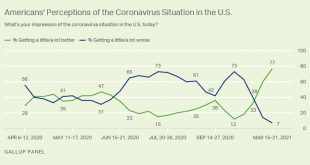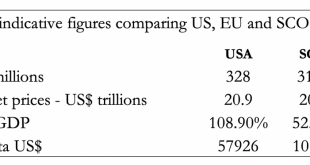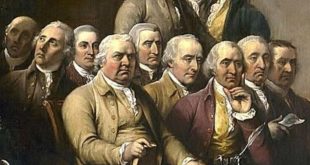The bureaucrat is not only a government employee. He is, under a democratic constitution, at the same time a voter and as such a part of the sovereign, his employer. He is in a peculiar position: he is both employer and employee. And his pecuniary interest as employee towers above his interest as employer, as he gets much more from the public funds than he contributes to them. This double relationship becomes more important as the people on the government’s payroll...
Read More »No, Conservatives Should Not Embrace MMT
Reading Jonathan Culbreath’s “Modern Monetary Theory for Conservatives” one can’t help but think of Murray Rothbard’s quip that “it is not a crime to be ignorant of economics … but it is totally irresponsible to have a loud and vociferous opinion on economic subjects while remaining in this state of ignorance.“ Culbreath’s case for modern monetary theory (MMT) rests on an ignorance of basic economic principles regarding the role of money in a free market economy....
Read More »Thanks to the Fed, the High-Risk, Small-Time Borrower Is Becoming a Thing of the Past
Banks and accounting trickery go together. Last year, as I remember back to my banking days, financial institutions followed the advice once proffered by one of our board members, “If we’re going to the dump, let’s take a full load.” When the pandemic struck, banks dumped plenty in their loan-loss provisions, $60 billion, expecting the worst. The cavalry arrived led by Jerome Powell’s Fed liquidity flood, Steven Mnuchin’s Paycheck Protection Program (PPP) loans,...
Read More »Why Empowering Organized Labor Will Definitely Not Help the Economy
Paul Krugman has a very prominent perch from the editorial page at the New York Times and he has used his influence, among other things, to shill for two things that are anathema to a strong economy: inflation and organized labor. My analysis examines what Krugman says about labor unions and explains why once again his economic prognostications are off base. In a recent column, Krugman declares that the present political climate may reverse the long trend in private...
Read More »A Dozen Dangerous Presumptions of Crisis Policymaking
Congress and the president have adopted many critically important policies in great haste during brief periods of perceived national emergency. During the first “hundred days” of the Franklin D. Roosevelt administration in the spring of 1933, for example, the government abandoned the gold standard, enacted a system of wide-ranging controls, taxes, and subsidies in agriculture, and set in motion a plan to cartelize the nation’s manufacturing industries. In 2001, the...
Read More »The Biggest Threat to US Hegemony: China, Russia, or Debt?
China and Russia are trying to build a Eurasion bloc that can break free of any American spheres of influence. The American regime obviously opposes this, but money printing and debt limits the American options. Original Article: “The Biggest Threat to US Hegemony: China, Russia, or Debt?” Now that the Biden administration has settled in, it is time to reassess American policy towards Russia, China and the wider Asian scene. Is it going to be a continuation of...
Read More »Not Even Gretchen Whitmer Wants More of the CDC’s Lockdowns
The US state with the fastest growing covid-19 caseload is a state that has experienced some of the harshest and longest lockdowns and covid restrictions: Michigan. As of April 20, the seven-day moving average for new covid cases in Michigan was 790 per million. This is higher than any other US state, and it is several times higher than the case rate for Michigan a year ago. It is comparable to what it was at the beginning of cold and flu seasons last fall, when...
Read More »The Biggest Threat to US Hegemony: China, Russia, or Debt?
Now that the Biden administration has settled in, it is time to reassess American policy towards Russia, China and the wider Asian scene. Is it going to be a continuation of the Trump administration’s policies, or is there something new going on? Given the continued tenure of staffers at the Pentagon from before the Trump presidency, it seems unlikely there will be much in the way of détente: it is game-on for the cold war to continue. Before delving into...
Read More »Is Tucker Carlson Right About Replacement Theory?
Tucker Carlson seems to believe that if it weren’t for immigrants, America would be dominated by religiously devout, tradition-minded, liberty-loving Americans in every corner of the nation. Perhaps he’s not familiar with the effects of American universities and public schools? Be sure to follow Radio Rothbard at Mises.org/RadioRothbard. [embedded content] You Might Also Like Weekly SNB...
Read More »America’s “Great Men” and the Constitutional Convention
[Chapter 13 of Rothbard’s newly edited and released Conceived in Liberty, vol. 5, The New Republic: 1784–1791.] From the very beginning of the great emerging struggle over the Constitution the Antifederalist forces suffered from a grave and debilitating problem of leadership. The problem was that the liberal leadership was so conservatized that most of them agreed that centralizing revisions of the Articles were necessary—as can be seen from the impost and...
Read More » Swiss Economicblogs.org
Swiss Economicblogs.org










